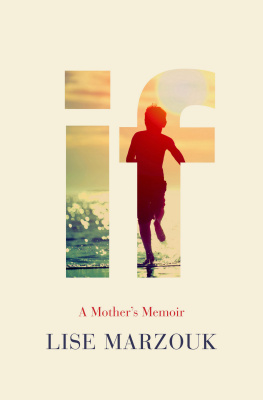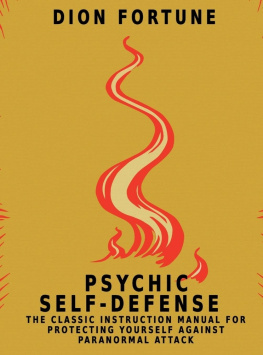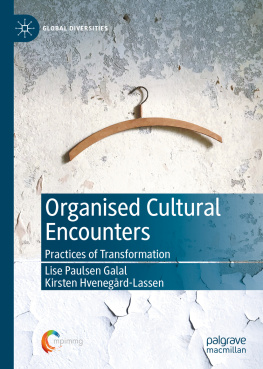The Discovery
F or two days I had been trying to get hold of my mother by telephone. But she never answered. Although I knew she was often out, I was worried. I called the superintendent of her building and asked him to check if she was home. I wanted to be reassured at all costs. No problem, he said. Ill call you back in fifteen minutes.
Half an hour later, he still hadnt called back. I was sick with worry, like a mother who cant find her child. Finally, after forty minutes, the telephone rang. The superintendent asked me to come immediately, but I wanted to know before I left if my mother was all right or if she was ill. He repeated urgently, Come right away!
On the way over, I imagined the worst. I pictured her lying on the floor, flat on her stomach. She was trying to drag herself to the phone to call me and ask me to help her. I felt sick, distraught, I couldnt stop crying, and barely managed to keep my mind on the road.
When I drove up to her building, I saw police and paramedics bustling about. I dont have a clear recollection of what happened next. I remember the superintendent hugging me to stop me from going inside. Choosing his words with infinite care, he explained that my mother had been dead for several hours. It was better for me not to see her in that condition.
A fellow tenant who lived on the same floor as my mother and knew her well invited me in while I waited for the father of my children to arrive and to take control of the situation because I was unable to.
Then a policeman and a paramedic came to reassure me. They explained that my mother had died of a pulmonary embolism and had already lost consciousness at the moment of her death. When they entered her apartment, she was simply sitting in her armchair. So she hadnt had time to try to call me, as I had pictured in my mind.
Their explanations made me feel better. They also told me there was no indication whatsoever that she had suffered before she died. I was relieved. But when they mentioned that her death might have occurred two days earlier, a tremendous feeling of guilt overcame me. And that feeling haunts me to this day.
A few hours later, morgue employees took my mothers body away. Only then could I bring myself to go into her apartment.
The first thing I caught sight of was her nightgown. It lay on the floor near the chair in which she died. I shrank back. It was too much for me. I asked the superintendent and my husband to get rid of any traces that might remind me of my mothers last moments.
When I finally stepped into her small furnished place, a strong smell of decomposition hit me. It was a distinctive odour. Even if youve never smelled it before, something tells you it is the smell of death. Its like the scent of cheap face powder that turns your stomach, but at the same time theres the stench of something cold decaying.
I thought I would never be able to get rid of that smell. It clung to my nostrils and my clothes. But worse were the fathomless silence and the great emptiness pervading her apartment. My only thought was: I must gather together all the necessary documents as quickly as possible and get out of here.
When I think back on the days I spent at the funeral parlour, I realize I was in a trance. All I wanted to do was sit on the floor and cry my eyes out. Yet I struggled to keep calm. I must have been afraid my behaviour might seem a little excessive because of my grief, but we all mourn in our own way.
Before they closed the casket, I wanted to make sure my mother had everything she needed for her great journey. I lifted the satin cloth covering her body and checked if they had put on the wool socks I had brought. My mother always had cold feet. I would have liked to wrap her in a warm blanket but restrained myself.
To me, my mother was still alive. It hadnt sunk in that all life had left her body. This lasted a few hours. Thats why I insisted she wear her glasses. I wanted her to be able to recognize the people waiting for her on the other side, should there be another side.
My children and I put all kinds of objects in her last bed. My children gave her drawings and wrote her affectionate notes, whereas I wrote her a long letter in which I asked her among other things to send me a sign from time to time. Especially when I needed her advice.
Around her, in the casket, we placed a few pictures of Maurice, her husband, and of their marriage. Maurice was the love of her life and, according to her wish, she would be buried by his side. Next to her, near her head, we placed a photo of her beloved brother Rosaire.
I also laid a few Salix iona stems in the casket. They were her favourite flowers, members of the willow family. She called them simply her little pussycats. Every summer, she would search high and low for them, gathering them into bouquets.
My children and I wanted her to take along all her familiar things. It was our way of delaying the final closing of the casket. The funeral director didnt seem too happy about our activities and kept giving us odd looks, but we just couldnt resign ourselves to seeing her leave forever.
At the cemetery, I noticed there was water at the bottom of the grave. I became hysterical, I started screaming that the casket wasnt watertight, that the water could seep into it. I even asked that they pump that water out before lowering my mothers casket.
The gravediggers, who had seen worse, didnt budge, and forced us to leave before they proceeded with the burial. My children thought I had been acting rather strangely since my mothers death. I think I scared them a little. They were eleven and thirteen and had never seen me in such a state.
Barely twenty-four hours after my mothers funeral, the superintendent of the building where she had lived notified me that the apartment urgently needed to be cleared out. Apparently, a new tenant was eager to move in.
Cleared out, he said. What a dreadful, coarse expression! He was trying to make it plain to me that life went on and a mere coat of paint would get rid of any trace of the admirable woman she had been.
I almost shouted at him, You cant possibly have known her well, or you would be mourning her death and not pressing me to throw out her soul! When we experience great sorrow, other peoples everyday concerns become intolerable to us.
I plucked up whatever courage I had left and could at last bring myself to open the door to her home. If I had gone there with brothers and sisters, I think it would have been easier. Even though I know that often in large families people quarrel over an insignificant scrap of fabric that isnt listed in the will, I found it very difficult not to be able to share these dramatic moments with anyone.















